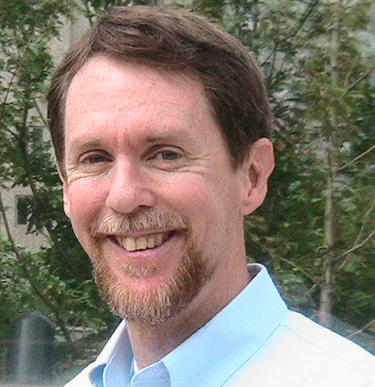The Idiotic Notion That QE Is Not Inflationary
When someone says that QE (Quantitative Easing) is not inflationary they are probably claiming that it doesn't bring about an increase in the general price level. However, they could also be claiming that it only adds to bank reserves and therefore doesn't cause the economy-wide supply of money to increase. Both claims are completely wrong.
We dealt with the claim that QE doesn't add to the money supply in our 17th December commentary, when we wrote: "...every $1 of bond monetisation by the Fed adds $1 to bank reserves held at the Fed and $1 to "demand deposits" held at commercial banks. Bank reserves aren't counted in the money supply, so there is a net addition of $1 to the money supply for every $1 of bonds purchased by the Fed via a "QE" program. The correct way to view the situation is that the Fed is adding 'covered money' to the economy, in that every new dollar is covered by reserves at the Fed."
A more detailed description of how QE boosts the money supply is found in Mike Pollaro's November-2010 article posted HERE. This article was written in response to Bernanke's blatant lie that "QE2" wouldn't increase the money supply, but the description of the money creation process applies to all of the Fed's QE programs. The only change in the process from one QE program to the next is the type of asset being monetised. Sometimes the Fed monetises Treasury Securities and at other times it monetises Mortgage Backed Securities. It is conceivable that in the future the Fed will even monetise shares or houses or gold.
You should read the entire Pollaro article, but here's an excerpt that covers the mechanics of money-supply growth via QE:
"The Federal Reserve will be purchasing $600 billion in Treasury securities through the second quarter of 2011, about $75 billion per month from 18 licensed security dealers and most likely from some foreign official institutions too. It will pay for these Treasury securities by writing checks on itself, totaling $600 billion in aggregate, $75 billion per month. Those checks are money orders, to pay cash to these security dealer(s) and/or foreign official institution(s) in return for their Treasury securities. So, upon the sale of their Treasury securities to the Federal Reserve, those security dealer(s) and/or foreign official institution(s) will deposit their checks in their respective bank accounts, and in so doing get cash in the form of deposit money. And the banks, when they turn those checks over to the Federal Reserve for payment, will get reserves in the form of deposits at the Federal Reserve. In sum, those checks, which spring directly from the Federal Reserve's QE program, become both deposit money and reserves, dollar for dollar, with each and every asset purchase. Bernanke then has given the good students at Jacksonville University only half the story. The Federal Reserve's QE II purchase program will not only be spiking reserves by $600 billion, but it will also be spiking the money supply by exactly the same amount."
The other fallacious claim is that QE doesn't increase the general price level. You only need a rudimentary understanding of economics to know why this claim is wrong. First, we know for a fact that QE increases the economy-wide supply of money. Second, one of the most basic of economics concepts revolves around the relationship between supply, demand and price. The current market price is, by definition, the price at which supply and demand are in balance, and it is axiomatic that the greater the supply of something the lower the thing's price will be for a given demand. It would certainly be possible for a simultaneous increase in demand to prevent an increase in the supply of a good or service from causing a reduction in its price, but in this case the increase in supply still results in the price being lower than it would have been.
The supply-demand-price relationship applies to money just like it applies to everything else that is traded. If the supply of money increases then the price (purchasing power) of money will end up being lower than it would otherwise have been. The only difference with money is that there isn't a single number that represents price. Attempts are regularly made to calculate such a number, but even if the calculations were carried out rigorously and with the best of intentions the result would be bogus.
The reality is that while an increase in the money supply MUST lower the purchasing power of money, it will do so in a non-uniform way and with unpredictable time lags. This creates a measurement problem, in that we can't show a simplistic correlation between a money-supply increase and an increase in a number that accurately represents the general price level. Such a number just doesn't exist in the real world, although most people who regularly buy everyday items will probably be able to roughly estimate the pace at which their money is losing purchasing power.
In conclusion, anyone who claims that QE does not increase the economy-wide supply of money may as well hold up a sign that reads "I'm clueless about how QE works and how money is created". And anyone who claims that increasing the money supply does not reduce the price (purchasing power) of money may as well hold up a sign that reads "I don't understand basic economics".
In every meaning of the word "inflationary", the Fed's QE programs are inflationary.
Regular financial market forecasts and analyses are provided at our web site: www.speculative-investor.com/new/index.html
We aren't offering a free trial subscription at this time, but free samples of our work (excerpts from our regular commentaries) can be viewed at: www.speculative-investor.com/new/freesamples.html






 Steve Saville graduated from the
Steve Saville graduated from the 









